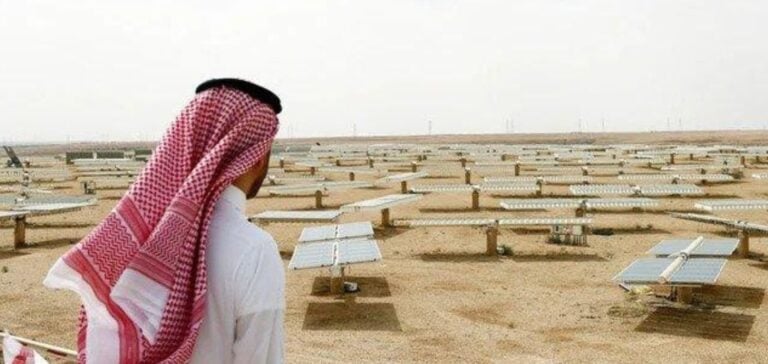Saudi Arabia recently inaugurated an ambitious project to map potential sites for the development of renewable energy projects. This project, part of the National Renewable Energy Program, is unprecedented on a global scale in terms of geographical coverage. In fact, it covers more than 850,000 square kilometers, an area comparable to the combined land area of the United Kingdom and France, or Germany and Spain. Contracts for this project have been awarded to Saudi companies, who will be responsible for installing 1,200 solar and wind energy measuring stations across all regions of the Kingdom. The Minister of Energy, Prince AbdulAziz bin Salman bin AbdulAziz Al Saud, stressed the importance of this project in identifying the most promising sites in terms of renewable resources and development priorities.
Project operation and objectives
In the first phase, these stations will collect data on solar irradiation and wind levels. This crucial information will enable us to select optimal sites for renewable energy projects. Once these sites have been identified, the stations will be relocated for continuous monitoring, guaranteeing accurate, real-time data for project implementation. The solar energy measuring stations will be equipped with state-of-the-art devices recording various parameters such as direct normal irradiance (DNI), global horizontal irradiance (GHI), diffuse horizontal irradiance (DHI), as well as dust and pollutant deposition rates, ground radiation (albedo), ambient temperature, precipitation levels, relative humidity and atmospheric pressure. Wind energy measurement stations will be installed at various heights, up to 120 meters, and will record wind speed and direction, ambient temperature, atmospheric pressure and relative humidity.
Technology and Financial Benefits
The project incorporates cutting-edge technologies for data collection and analysis, including artificial intelligence, to rank sites according to their suitability for renewable energy projects. A platform will also be set up within the Ministry of Energy to continuously monitor, record and transmit data. This enables rapid and accurate digital analysis, facilitating the allocation of land for projects and speeding up their announcement and execution. The Minister pointed out that the availability of this data reduces the risks associated with the implementation of renewable energy projects, increases their attractiveness to investors, and encourages participation in developments and investments in these projects. Reducing data collection times from the current 18 to 24 months to immediate availability is a significant advantage for the sector.
Strategic Impact and Future Commitments
This project reaffirms Saudi Arabia’s commitment to achieving its ambitious targets for the production and export of renewable energy. It optimizes the use of renewable resources across the Kingdom, supports the Kingdom’s strategic position in the export of renewable electricity and promotes the production of clean hydrogen. The initiative also contributes to the objectives of the optimal energy mix program for power generation, aiming for renewable energy sources to account for around 50% of the energy mix by 2030. The project also supports the liquid fuel substitution program, reducing dependence on liquid fuels for power generation. Starting this year, the Kingdom will launch new renewable energy projects with a capacity of 20 gigawatts per year, with the aim of reaching between 100 and 130 gigawatts by 2030, depending on the growth in electricity demand.
Gratitude was expressed to King Salman bin AbdulAziz Al Saud and Crown Prince Mohammed bin Salman bin AbdulAziz Al Saud for their continued support of the Ministry of Energy and its initiatives to achieve the objectives of the Kingdom’s Vision 2030.






















